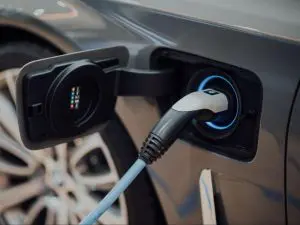With summer on the horizon, many homeowners in Delaware County anticipate enjoying their swimming pools, basking in the sun and cooling off in the water. However, electrical issues can quickly turn your pool time into a stressful experience. Ensuring your pool’s electrical system is safe and functional is essential for a worry-free summer.
Common electrical problems in pools often arise from faulty wiring, malfunctioning pool pumps and heaters, and issues with pool lighting. These problems typically result from inadequate maintenance and improper installation, leading to electrical shorts, power outages, and even the risk of electric shock. For example, corrosion or wear on wiring can disrupt the stable electrical supply needed for pool pumps and heaters, while flickering or dim pool lights may signal underlying electrical faults.
Recognizing these common issues is the first step toward keeping your pool safe and enjoyable throughout the busy summer months.
Identifying Signs of Electrical Problems in Your Pool
Pool Pump Failure
The pool pump is a critical component of your pool’s electrical system. If your pool pump isn’t operating correctly, it could indicate electrical issues. Unusual noises like grinding or humming may suggest worn or damaged electrical components within the pump motor.
Additionally, if the pump fails to turn on or operates intermittently, it could be due to electrical problems such as a tripped circuit breaker, a blown fuse, or faulty wiring connected to the pump.
Tripping Circuit Breakers
Frequent tripping of circuit breakers is a clear sign of electrical problems within your pool system. This could be caused by a short circuit, ground fault, or an overloaded electrical circuit.
When circuit breakers trip repeatedly, it may indicate that your electrical system cannot handle the power demands of your pool equipment, including the pump, heaters, or lights. Identifying the root cause is essential, as persistent tripping can lead to more severe electrical hazards and damage to your equipment.
Erratic Pool Light Function
Pool lights that flicker, dim, or fail to turn on can indicate significant electrical issues. Flickering lights often point to loose wiring, corroded connections, or a failing transformer disrupting the power flow to the lights. If the lights don’t turn on at all, it could be due to a tripped circuit breaker, a blown fuse, or a Ground Fault Circuit Interrupter (GFCI) outlet shutting off power to prevent electrical hazards.
Water intrusion into the light fixture, causing short circuits, is another common issue that requires immediate attention to avoid the risk of electric shock.
Step-by-Step Troubleshooting Techniques
Checking the Pool Pump
Start troubleshooting your pool pump by ensuring all power to the pump is turned off for safety. Conduct a thorough visual inspection of the pump and its connections.
Look for signs of damage, wear, or water intrusion that could be causing the issue. Inspect the pump motor connections and wiring for any loose or frayed wires, as these can lead to electrical malfunctions and safety hazards. Using a multimeter, test the electrical components of the pump for continuity and proper voltage levels.
This will help identify faulty components that may need replacement. Additionally, listen for unusual noises from the pump, such as grinding or humming, which can indicate internal mechanical or electrical issues.
Resetting and Testing Circuit Breakers
If circuit breakers are tripping frequently, it’s essential to identify and address the underlying issue. Start by turning off all devices connected to the affected circuit, then reset the breaker by switching it off and back on.
If the breaker trips again immediately, it may indicate an overload or a short circuit in the system. Check the breaker box to ensure there is no overload and verify that all switches are in the correct position.
Inspect the GFCI outlets near the pool area, as they are designed to trip when they detect electrical imbalances. Reset any tripped GFCI outlets by pressing the reset button.
If the problem persists, examine the wiring for visible damage, such as frayed wires or loose connections.
Assessing Pool Lighting Issues
Begin troubleshooting pool lighting issues by checking for obvious causes like burnt-out bulbs or loose connections. Ensure all power to the pool lights is turned off before inspecting or repairing.
Inspect the light fixtures for signs of water intrusion, which can cause short circuits and electrical hazards. Use a multimeter to test the voltage and continuity of the wiring leading to the pool lights. Check for corrosion or wear on the wiring and connections, which can disrupt the power supply.
If the lights are flickering or not turning on, it could also be due to a tripped circuit breaker or a faulty GFCI outlet, so ensure these are functioning correctly.
Preventive Measures and When to Call a Professional
Maintaining Electrical Components
Regular maintenance is essential to ensure the longevity and safety of your pool’s electrical system. Conduct routine inspections of all electrical components, including the pool pump, lights, heaters, and associated wiring. Look for signs of wear, damage, or corrosion on cords, plugs, and equipment.
If any issues are found, replace the damaged components immediately to prevent further electrical problems. Keep the pool area clean and free of debris to avoid accidental damage to electrical equipment. Avoid using extension cords near the pool or hot tub, as they are not designed for wet environments and can create both electrical and tripping hazards.
Ensure all electrical installations and maintenance are performed by a licensed electrician knowledgeable about pool safety standards. This includes ensuring all materials and workmanship meet local electrical codes and are suitable for outdoor use.
Recognizing Advanced Electrical Issues
While some electrical issues can be resolved through basic troubleshooting, more complex problems require professional attention. Advanced electrical issues may involve intricate wiring problems, faulty grounding or bonding systems, or malfunctions in critical components like transformers or circuit breakers.
If persistent electrical malfunctions occur despite your troubleshooting efforts, or if you encounter warning signs such as frequent tripping of circuit breakers, flickering lights, or unusual sounds from equipment, it’s time to call a professional.
A licensed electrician specializing in pool systems can safely and efficiently diagnose and repair complex issues, ensuring your pool electrical system meets all safety standards and operates reliably. Additionally, if you’re upgrading an older pool or hot tub, consulting a professional can ensure the electrical system is updated to current safety standards, which may involve replacing outdated wiring and equipment, installing modern GFCI protection, and improving grounding and bonding systems.
Conclusion
Maintaining your pool’s electrical system is essential for safety and reliability. Regular maintenance of electrical components, such as the pool pump and lighting, can prevent many common issues.
However, when advanced problems arise, it’s important to know when to call a professional. Licensed electricians, with their expertise and adherence to local codes, can ensure your pool electrical system is safe, efficient, and prepared for future needs. Whether troubleshooting minor issues or requiring comprehensive repairs, proactive maintenance and timely professional intervention are key to a safe and enjoyable pool experience.
Don’t hesitate to seek help when needed, and always prioritize electrical safety to protect yourself, your family, and your property. By taking these steps, you can ensure your pool remains a haven of fun and relaxation throughout the summer months.
FAQ
What are the common causes of electrical issues in swimming pools, and how can they be identified?
Common causes of electrical issues in swimming pools include faulty wiring due to corrosion or wear, loose connections, overloading or moisture intrusion in circuit breakers, and improper grounding or bonding. These issues can be identified by symptoms such as flickering lights, tripped breakers, unusual sounds from the pump, and exposed wires.
Regular inspections of wiring, pumps, and lights, as well as checking for burnt-out bulbs and verifying circuit protection, are essential for early detection.
How often should I have my pool’s electrical system inspected, and who should perform the inspection?
Ideally, pool electrical inspections should be scheduled at least annually before the swimming season begins, though biannual inspections are recommended for indoor pools or components like automation and control systems. Inspections should be performed by a qualified electrician or electrical inspector.
What are some signs of faulty wiring or electrical malfunctions in pool equipment such as pumps, heaters, and lights?
Signs of faulty wiring or electrical malfunctions in pool equipment include flickering or dim lights, strange noises from the pump, frequent breaker tripping, odd sounds or buzzing from outlets, and inconsistent performance such as pumps or heaters not turning on or shutting off abruptly. Corrosion, rust, or chewed wires can also indicate issues. Additionally, strange odors, underwater bulbs not working, and voltage drops when the pump starts can be indicators.
What safety precautions should I take before starting any inspection or repair work on my pool’s electrical system?
Before starting any inspection or repair work on your pool’s electrical system, ensure you disconnect the power supply to prevent accidental electrocution. Work with a qualified electrician to adhere to local electrical codes and best practices. Regularly inspect and maintain all electrical components to identify potential issues early.



